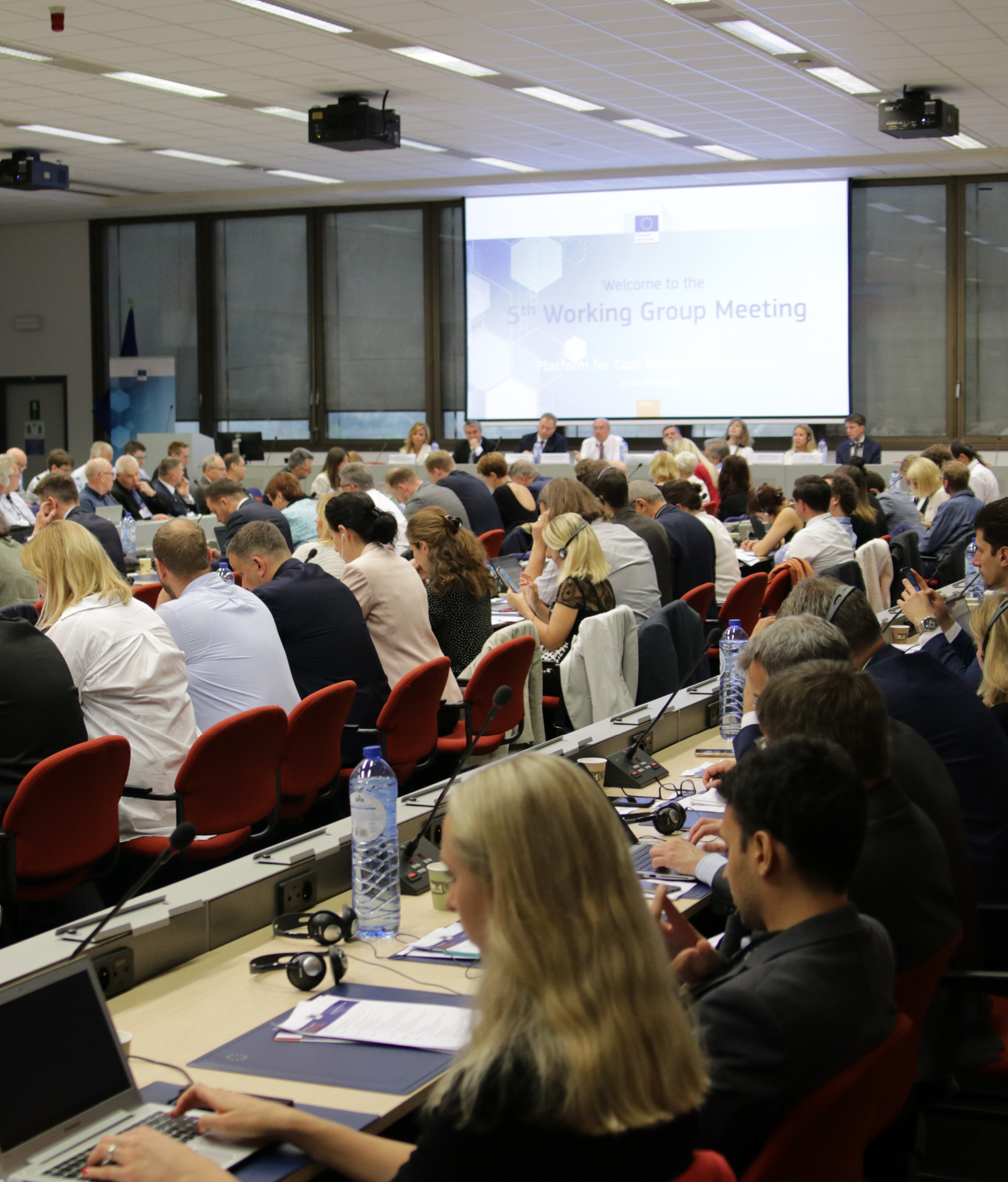The energy transition doesn’t stop at the border. Europe has to work together.

date: 17/07/2019
Representatives of regions, public authorities, NGOs, civil society and the private sector recently convened in Brussels for the 5th Working Group Meeting of the Platform for Coal Regions in Transition to discuss a broad range of themes facing EU coal regions.
The two-day event was packed with dialogue, exchange, learning and networking. Throughout, participants confirmed that cooperation among regions and stakeholders is key to successful energy transition.
Bringing people together
Katja Müller, Project Manager at Wirtschaftsregion Lausitz GmbH working on the “Future Workshop for Lusatia” project, emphasised the importance of interregional cooperation at the EU level: “Europe has to work together, because the energy transition doesn’t stop at the border. It will only work if we work together and organise collective projects.”
Efforts to build interregional networks and bring different partners together were a key focus throughout the Working Group Meeting. Many participants shared the opinion that action plans and projects should be developed in collaboration, to ensure projects align and that efforts complement each other.
Paul Boutsen, a consultant in the redevelopment of former coal mining sites and mining regions based in Belgium recounted: “I met people from Silesia, we have put projects on the table and we will soon start working together on a project to create syngas and hydrogen out of the energetic fraction of municipal waste.” He praised the Platform’s role in creating this momentum and facilitating exchange, observing, “People’s enthusiasm to share their knowledge is growing and regions will soon start writing and developing projects together.”
Bankwatch’s Alexandru Mustață recognised the Platform’s efforts to bring differing voices together to find collective cause and solutions, saying, “We have been involved in the Platform since the beginning, and we have seen a growing participation and involvement of different actors.” He added that Bankwatch supports the Platform’s efforts, because they too “believe that solutions should be identified by sharing knowledge among regions, but also among the wider stakeholder community.” Reflecting on the Platforms inclusive culture, he noted that Bankwatch is “happy to see that the Platform shares this approach.”
Although the Platform works at the EU level, it was acknowledged at the Working Group Meeting that global and non-EU perspectives need to be further considered in order to find ways to accelerate the transformation process and facilitate the exchange of good practice. International perspectives and examples were drawn on at the meeting with a range of international actors, including the World Bank, Powering Past Coal Alliance and the EBRD, providing a rich understanding of the processes taking place outside of the EU.
Workers and Trade Unions are at the core of the transition in coal regions
Not only are unions crucial players in creating a successful, low carbon economy, but, according to Samantha Smith, Director at the Just Transition Centre, “when unions and workers are at the table, you get durable agreements and more climate ambition than you thought you were going to get.” She added, “We are in a hurry to phase out coal because of climate change. But the fact that we are in a hurry should not be the problem of people who have been working in industry all their lives and contributed to its prosperity.”
The most direct and pressing challenge for workers is the closure of coal mines and related industries. Meeting participants were introduced to the experiences of workers facing coal mine closures and regional revitalisation, and discussed obstacles and knowledge gaps in the effective transformation of post-mining assets in European coal regions. For example, following the closure of mines and related enterprises, Limburg successfully implemented a strategic plan that led to inward investment, enhanced enterprise and innovation, and population growth. Despite the challenge of coal mine closures, the region is notable for creating jobs and enterprises, attracting corporate investments, and increasing employment rates.
Klaus-Dieter Borchardt, Deputy Director General at DG Energy, affirmed that including workers and Trade Unions is a priority, stating: “Only then can we talk about a clean and fair energy transition.” He pointed to the results of the recent EU elections to underline that the Platform’s efforts to “raise our energy and climate ambitions while considering the social-economic implications of the transition” are the correct and prudent way forward. He observed that “the elections confirmed that we need to continue to work for a clean and fair transition.”
The path towards a low-carbon economy requires technical assistance
As part of its support to regions, the Platform’s Secretariat presented the Secretariat’s Technical Assistance to Regions in Transition (START) programme, which is now open for applications. Participants also heard presentations from providers of other sources of technical support, namely JASPERS and the EC’s Structural Reform Support Service (SRSS). Although financing plays a key role in fair and successful transition, participants agreed that this needs to go hand in hand with sound strategy, appropriate know-how and ambitious commitments by Member States.
